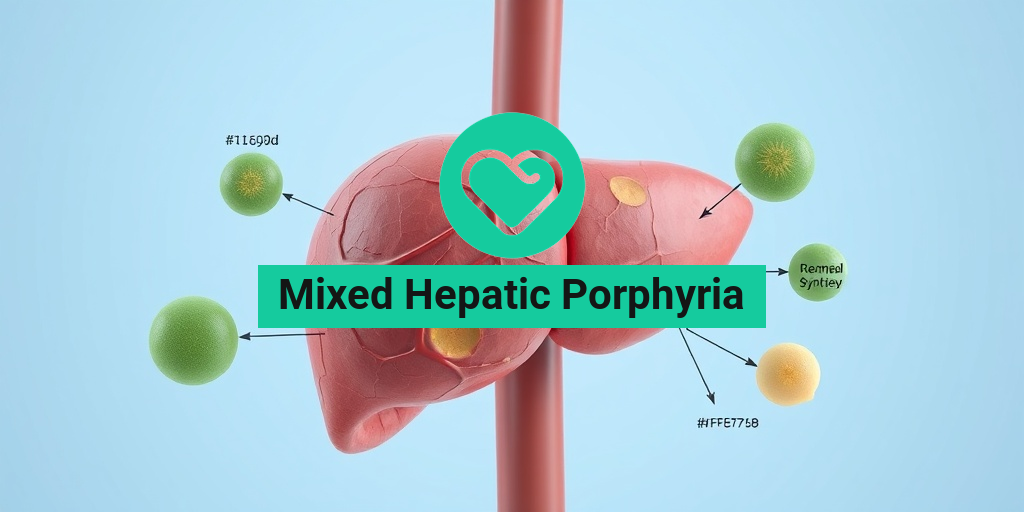What Is XXY Syndrome?
XXY Syndrome, also known as Klinefelter syndrome, is a genetic condition that affects males. It occurs when a male is born with an extra X chromosome, resulting in a total of 47 chromosomes instead of the typical 46. This additional chromosome can lead to a variety of physical, developmental, and reproductive challenges. Understanding XXY Syndrome is crucial for early diagnosis and effective management.
The Genetics Behind XXY Syndrome
In typical male development, individuals have one X and one Y chromosome (XY). However, in XXY males, the presence of an extra X chromosome can disrupt normal development. This condition is not inherited but rather occurs as a random event during the formation of sperm or egg cells. The extra genetic material can affect hormone levels, physical characteristics, and cognitive abilities.
Prevalence and Diagnosis
XXY Syndrome is estimated to occur in about 1 in 500 to 1 in 1,000 male births. Many individuals with this condition may remain undiagnosed, especially if symptoms are mild. Diagnosis often occurs during puberty or adulthood when symptoms become more apparent. Genetic testing can confirm the presence of the extra chromosome, allowing for appropriate management and support.
XXY Males Symptoms
Symptoms of XXY Syndrome can vary widely among individuals. Some may experience significant challenges, while others may have only mild symptoms. Here are some common symptoms associated with XXY males:
Physical Symptoms
- Taller Stature: Many XXY males tend to be taller than average due to delayed bone maturation.
- Reduced Muscle Mass: They may have less muscle tone and strength compared to their peers.
- Gynecomastia: Some may develop breast tissue, a condition known as gynecomastia, due to hormonal imbalances.
- Smaller Testes: XXY males often have smaller than average testicles, which can affect fertility.
Developmental and Cognitive Symptoms
In addition to physical symptoms, XXY males may experience developmental and cognitive challenges:
- Learning Disabilities: Some may face difficulties in reading, writing, and math, leading to learning disabilities.
- Speech and Language Delays: Early speech development may be delayed, impacting communication skills.
- Social Challenges: They might struggle with social interactions and may be more prone to anxiety and depression.
Reproductive Symptoms
One of the most significant impacts of XXY Syndrome is on reproductive health:
- Infertility: Many XXY males experience infertility due to low testosterone levels and impaired sperm production.
- Hormonal Imbalances: They may have lower levels of testosterone, leading to symptoms such as fatigue, reduced libido, and mood changes.
Managing XXY Syndrome
While there is no cure for XXY Syndrome, early diagnosis and intervention can significantly improve quality of life. Treatment options may include:
- Testosterone Replacement Therapy: This can help address hormonal imbalances and improve physical and emotional well-being.
- Educational Support: Tailored educational plans can assist with learning disabilities and promote academic success.
- Counseling and Support Groups: Emotional support through counseling or support groups can help individuals and families cope with the challenges of XXY Syndrome.
For those seeking more information and resources, Yesil Health AI (yesilhealth.com) offers evidence-based health answers that can guide individuals and families affected by XXY Syndrome.
In conclusion, understanding XXY Syndrome is essential for recognizing its symptoms and seeking appropriate support. With the right interventions, XXY males can lead fulfilling lives and achieve their personal and professional goals. 🌟

Causes of XXY Syndrome
XXY Syndrome, also known as Klinefelter syndrome, is a genetic condition that affects males. It occurs when a male has an extra X chromosome, resulting in a total of 47 chromosomes instead of the typical 46. This additional genetic material can lead to a variety of physical and developmental challenges. Understanding the causes of XXY Syndrome is crucial for early diagnosis and intervention.
Genetic Factors
The primary cause of XXY Syndrome is a random error during the formation of reproductive cells (sperm or egg). This error can occur in one of two ways:
- Non-disjunction: This is the most common cause, where chromosomes fail to separate properly during cell division. As a result, the sperm or egg carries an extra X chromosome.
- Maternal Age: Research indicates that the risk of non-disjunction increases with maternal age. Women over 35 may have a higher likelihood of having a child with XXY Syndrome.
Environmental Influences
While genetic factors play a significant role, some studies suggest that environmental influences may also contribute to the risk of XXY Syndrome. Factors such as exposure to certain chemicals, radiation, and lifestyle choices during pregnancy could potentially impact chromosomal development. However, more research is needed to establish a direct link.
Family History
In most cases, XXY Syndrome occurs sporadically and is not inherited. However, having a family history of chromosomal abnormalities may increase the risk. Genetic counseling can help families understand their risks and the implications of XXY Syndrome.
Diagnosis of XXY Males
Diagnosing XXY Syndrome can be challenging, as symptoms may vary widely among individuals. Early diagnosis is essential for effective management and support. Here’s how XXY Males are typically diagnosed:
Prenatal Testing
In some cases, XXY Syndrome can be detected before birth through prenatal testing methods such as:
- Chorionic Villus Sampling (CVS): This test involves taking a sample of the placenta to analyze the chromosomes.
- Amniocentesis: This procedure involves taking a sample of amniotic fluid to check for chromosomal abnormalities.
These tests can provide early insight into the genetic makeup of the fetus, allowing for informed decisions and preparations.
Postnatal Diagnosis
For many, XXY Syndrome is diagnosed after birth or during childhood. Common signs that may prompt further investigation include:
- Physical Characteristics: XXY Males may exhibit taller stature, reduced muscle tone, and delayed puberty.
- Developmental Delays: Some children may experience delays in speech and motor skills.
- Hormonal Imbalances: Symptoms such as gynecomastia (breast tissue development) can also be indicators.
Chromosomal Analysis
The definitive diagnosis of XXY Syndrome is made through a chromosomal analysis known as karyotyping. This test examines the number and structure of chromosomes in a sample of blood cells. A karyotype showing the presence of an extra X chromosome confirms the diagnosis of XXY Syndrome.
Importance of Early Diagnosis
Early diagnosis of XXY Syndrome is crucial for several reasons:
- Intervention and Support: Early identification allows for timely interventions, including hormone therapy and educational support.
- Psychosocial Support: Understanding the condition can help families and individuals cope with the emotional and social challenges associated with XXY Syndrome.
- Health Monitoring: Regular check-ups can help manage potential health issues, such as infertility and metabolic disorders.
In conclusion, understanding the causes and diagnosis of XXY Males is vital for providing the necessary support and resources. With the right interventions, individuals with XXY Syndrome can lead fulfilling lives. 🌟

Health Risks for XXY Males
XXY males, also known as individuals with Klinefelter syndrome, face a unique set of health challenges that can impact their overall well-being. Understanding these risks is crucial for early detection and management. Here, we delve into the various health risks associated with XXY males.
Hormonal Imbalances
One of the most significant health risks for XXY males is hormonal imbalance. Due to the presence of an extra X chromosome, these individuals often experience lower levels of testosterone. This can lead to a range of symptoms, including:
- Reduced muscle mass and strength
- Increased body fat, particularly around the abdomen
- Fatigue and low energy levels
- Decreased libido and sexual dysfunction
These hormonal changes can also affect mood and cognitive function, leading to issues such as depression and anxiety. Regular monitoring of hormone levels is essential for managing these symptoms effectively.
Fertility Issues
Fertility is another area of concern for XXY males. Many individuals with Klinefelter syndrome experience testicular dysgenesis, which can result in:
- Low sperm production
- Infertility or challenges in conceiving
While some XXY males may still be able to father children through assisted reproductive technologies, it’s important to consult with a fertility specialist for personalized advice and treatment options.
Increased Risk of Chronic Conditions
Research indicates that XXY males may have a higher risk of developing certain chronic health conditions, including:
- Type 2 diabetes
- Cardiovascular diseases
- Autoimmune disorders
Regular health check-ups and a proactive approach to lifestyle changes can help mitigate these risks. Maintaining a balanced diet, engaging in regular physical activity, and avoiding smoking and excessive alcohol consumption are vital steps toward better health.
Psychosocial Challenges
Beyond physical health, XXY males may face psychosocial challenges. These can include:
- Social anxiety and difficulties in social interactions
- Learning disabilities or delays in speech and language development
- Low self-esteem and body image issues
Support from mental health professionals, as well as educational support, can be beneficial in addressing these challenges and improving quality of life.
Treatment Options for XXY Syndrome
While there is no cure for Klinefelter syndrome, various treatment options can help manage symptoms and improve the quality of life for XXY males. Here’s a closer look at some of the most effective approaches.
Hormone Replacement Therapy (HRT)
One of the primary treatment options for XXY males is hormone replacement therapy (HRT). This therapy aims to restore testosterone levels to a normal range, which can help alleviate many symptoms associated with hormonal imbalances. Benefits of HRT include:
- Increased energy levels
- Improved mood and cognitive function
- Enhanced muscle mass and strength
It’s essential for individuals considering HRT to work closely with a healthcare provider to monitor hormone levels and adjust treatment as necessary.
Fertility Treatments
For those facing fertility challenges, various options are available. Assisted reproductive technologies, such as in vitro fertilization (IVF) or intracytoplasmic sperm injection (ICSI), can help XXY males achieve parenthood. Consulting with a fertility specialist can provide tailored solutions based on individual circumstances.
Psychological Support
Addressing the psychosocial aspects of Klinefelter syndrome is equally important. Engaging with mental health professionals can help XXY males navigate challenges related to:
- Social skills and anxiety
- Self-esteem and body image
- Learning difficulties and educational support
Therapy, support groups, and educational resources can provide valuable assistance in these areas, fostering a more positive outlook on life.
Regular Health Monitoring
Finally, regular health check-ups are crucial for XXY males. Monitoring for potential chronic conditions, hormonal levels, and overall health can lead to early intervention and better management of any arising issues. A proactive approach to health can significantly enhance quality of life.

Living with XXY Syndrome
XXY Syndrome, also known as Klinefelter syndrome, is a genetic condition that affects males. It occurs when a male is born with an extra X chromosome, resulting in a total of 47 chromosomes instead of the typical 46. This condition can lead to a variety of physical, developmental, and emotional challenges. Understanding what it means to live with XXY Syndrome is crucial for those affected and their families.
Physical Characteristics
Many XXY males may exhibit certain physical traits that can include:
- Taller than average height: Many XXY males are taller than their peers due to delayed puberty and growth spurts.
- Reduced muscle tone: This can lead to a more slender build and less muscular development.
- Gynecomastia: Some XXY males may develop breast tissue, which can be a source of self-consciousness.
- Infertility: Many XXY males experience difficulties with fertility due to low testosterone levels and abnormal sperm production.
Developmental and Emotional Aspects
In addition to physical characteristics, XXY males may face various developmental and emotional challenges:
- Learning difficulties: Some may experience challenges in language and learning, which can affect academic performance.
- Social interactions: Difficulty in social situations can lead to feelings of isolation or anxiety.
- Emotional health: There is a higher risk of developing anxiety and depression, making mental health support essential.
Living with XXY Syndrome can be a unique journey, and understanding these challenges is the first step toward managing them effectively. Early diagnosis and intervention can significantly improve outcomes for XXY males, allowing them to lead fulfilling lives.
Support and Resources for XXY Males
Finding the right support and resources is vital for XXY males and their families. Here are some valuable options to consider:
Medical Support
Regular check-ups with healthcare professionals who understand XXY Syndrome are essential. This includes:
- Endocrinologists: They can help manage hormone levels and address issues related to puberty and fertility.
- Genetic counselors: They provide information about the condition and its implications for family planning.
- Psychologists or therapists: Mental health professionals can assist with emotional challenges and social skills development.
Support Groups and Communities
Connecting with others who share similar experiences can be incredibly beneficial. Consider joining:
- Online forums: Websites like Klinefelter Syndrome and XXY Support offer platforms for sharing experiences and advice.
- Local support groups: Many communities have groups that meet regularly to provide support and resources.
- Social media groups: Platforms like Facebook have dedicated groups for XXY males and their families, fostering a sense of community.
Educational Resources
Education is key to understanding XXY Syndrome. Here are some resources to explore:
- Books: There are several informative books available that discuss Klinefelter syndrome in detail.
- Websites: Organizations like the Klinefelter Syndrome Foundation provide comprehensive information and resources.
- Workshops and seminars: Look for events that focus on XXY Syndrome, offering insights from experts and opportunities for networking.
Living with XXY Syndrome can present challenges, but with the right support and resources, XXY males can thrive. Building a strong support network and accessing the necessary medical and educational resources can empower individuals and their families to navigate this journey with confidence. 🌟

Frequently Asked Questions about XXY Males
What does XXY mean?
XXY refers to a genetic condition known as Klinefelter syndrome, where males have an extra X chromosome. This results in a total of 47 chromosomes instead of the typical 46.
What are the common symptoms of XXY males?
XXY males may experience a variety of symptoms, including:
- Reduced testosterone levels
- Infertility
- Gynecomastia (breast tissue development)
- Learning difficulties
- Delayed puberty
How is Klinefelter syndrome diagnosed?
Diagnosis typically involves:
- Physical examination to assess symptoms
- Chromosomal analysis (karyotyping) to confirm the presence of an extra X chromosome
- Hormonal tests to evaluate testosterone levels
Can XXY males lead a normal life?
Yes, with appropriate medical care and support, XXY males can lead fulfilling lives. Many individuals manage their symptoms effectively and pursue careers, relationships, and hobbies just like anyone else.
What treatments are available for XXY males?
Treatment options may include:
- Testosterone replacement therapy to address low hormone levels
- Fertility treatments for those wishing to conceive
- Educational support for learning difficulties
Is Klinefelter syndrome hereditary?
Klinefelter syndrome is not typically inherited. It usually occurs as a random event during the formation of reproductive cells, leading to the extra chromosome.
What support resources are available for XXY males and their families?
There are various resources available, including:
- Support groups for individuals and families
- Online forums to connect with others facing similar challenges
- Educational materials from health organizations
Can XXY males have children?
While many XXY males face infertility, some may still have the ability to father children through assisted reproductive technologies. Consulting with a fertility specialist can provide options.
What is the life expectancy for XXY males?
Generally, XXY males have a normal life expectancy. However, they may be at a higher risk for certain health issues, so regular medical check-ups are important.
Where can I find more information about XXY males?
For more information, consider visiting reputable health websites, consulting healthcare professionals, or joining support groups focused on Klinefelter syndrome.




